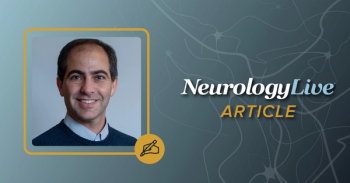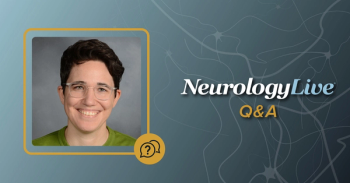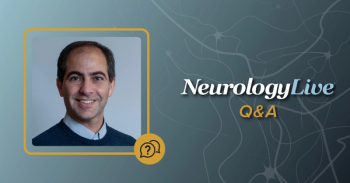
Phase 2b Clinical Trial of SCI-110 to Treat Tourette Syndrome Approved
The phase 2b trial investigating SciSparc’s SCI-110 for Tourette syndrome was recently granted approval to proceed by the Israeli Ministry of Health.
SciSparc announced that the Israeli Ministry of Health has approved the company’s phase 2b clinical trial (NCT05126888) evaluating its cannabis-derived agent SCI-110 in patients with Tourette Syndrome (TS).1 There are currently no FDA-approved, cannabis-derived treatments for the condition.
Tel Aviv Sourasky Medical Center in Israel is the first clinical site to receive approval to conduct the trial, which will be led by Tanya Gurevich, MD, professor, head of movement disorders unit, department of neurology. Also, SciSparc intends to conduct the trial in other various sites including Yale School of Medicine, which is led by Michael H. Bloch, MD, MS, associate professor in the Child Study Center, and Hannover Medical School, led by Muller-Vahl, MD, professor of psychiatry.
“We are excited to be granted approval to conduct our Tourette Syndrome clinical trial in Israel. This is another step for the Company's progress in the developments of much needed treatment for TS. We are proud to be able to collaborate with centers of excellence around the world such as Yale University, Hannover Medical School and the Tel Aviv Sourasky Medical Center,” Oz Adler, chief executive officer of SciSparc, said in a statement.1
The multinational, double-blind, placebo-controlled crossover trial will evaluate the safety, efficacy, and tolerability of the agent in a cohort of adults aged 18 to 65 years with TS. Patients will be randomly assigned 1:1 to either study drug or placebo and evaluated on tic severity change at end points of week 12 and week 26 using commonly frequented measures. Additionally, the primary safety objective of the trial will be to assess absolute and relative frequencies of serious adverse events (AEs) for the entire population and separately for the SCI-110 and placebo groups.1
"TS is estimated to affect 0.5-1% of the world's population, however the very few available treatments have limited efficacy and questionable safety. Based on previous results from our phase 2a trial conducted at the same site at Yale University, we believe our proprietary SCI-110 treatment has the potential to help TS patients around the world,” Adler added in a statement.1
In January 2022, SciSparc announced they had recruited the first patient to participate in their phase 2a study to evaluate SCI-110 in patients with Alzheimer disease (AD) agitation, one of the more common neuropsychiatric symptoms patients face. The trial, titled "Clinical Study Protocol Phase II-a open label trial to evaluate the safety, tolerability and efficacy trend of SCI-110 in patients with Alzheimer Disease and agitation," is currently being conducted at the Sophie & Abraham Stuchynski Israeli Alzheimer's Medical Center, Ramat-Gan, Israel.
Months later, in November 2022, the company announced interim results from the
In July 2022,
TS is a neurological disorder characterized by involuntary movements and vocalizations called tics and is estimated to affect approximately 1% of the world’s population. There remains an unmet need for medications to treat patients with TS, as only 3 therapeutics—haloperidol (Haldol), pimozide (Orap), and aripiprazole (Abilify)—have been greenlit by the FDA.
Physicians have also treated TS with off-label therapies such as guanfacine or clonidine, both of which are α-adrenergic agonists that are approved for use in the treatment of high blood pressure. SCI-110, currently in development for other indications, such as obstructive sleep apnea and Alzheimer disease (AD) agitation, contains a combination of dronabinol, an FDA-approved synthetic form of tetrahydrocannabinol (THC), with endocannabinoid palmitoylethanolamide (PEA).4
REFERENCES
1. SciSparc Receives Approval to conduct its Phase IIb Clinical Trial for SCI-110 to treat Tourette Syndrome. News Release. SciSparc. March 9, 2023. Accessed March 9, 2023. https://www.biospace.com/article/releases/scisparc-receives-approval-to-conduct-its-phase-iib-clinical-trial-for-sci-110-to-treat-tourette-syndrome/
2. SciSpar announced positive interim results meeting primary endpoints at phase 2a study in Alzheimer’s disease patients with agitation. News release. SciSparc. November 7, 2022. Accessed March 9, 2023. https://www.globenewswire.com/news-release/2022/11/07/2549772/0/en/SciSparc-Announced-Positive-Interim-Results-Meeting-Primary-Endpoints-at-Phase-IIa-Study-in-Alzheimer-s-Disease-Patients-with-Agitation.html
3. SciSparc announces expanding its clinical operations to include a US site towards its phase 2b trial with its proprietary SCI-110 for the treatment of Tourette Syndrome. News release, SciSparc. July 8, 2022. Accessed March 9, 2023. https://www.biospace.com/article/releases/scisparc-announces-expanding-its-clinical-operations-to-include-a-u-s-site-towards-its-phase-iib-trial-with-its-proprietary-sci-110-for-the-treatment-of-tourette-syndrome/
4. SciSparc announces recruitment of first patient for its phase 2a clinical trial in Alzheimer disease. News release. SciSparc. January 6, 2022. Accessed March 9, 2023. https://www.prnewswire.com/news-releases/scisparc-announces-recruitment-of-first-patient-for-its-phase-iia-clinical-trial-in-alzheimers-disease-301455472.html#
Newsletter
Keep your finger on the pulse of neurology—subscribe to NeurologyLive for expert interviews, new data, and breakthrough treatment updates.










